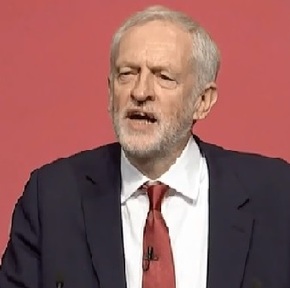Labour promises free personal care for over 65s in England
Free personal care including help washing, dressing and meal preparation has been promised by the Labour Party to people aged 65+ who are most in need of it.

At the Labour Party conference, Shadow Chancellor John McDonnell announced delivering free personal care will cost £6 billion a year in 2020-21 (based on an estimate from The King's Fund). Labour said this will be financed out of general taxation.
'87 people dying a day waiting for care'
Speaking at the annual conference in Brighton, Mr McDonnell said: “Nearly £8bn taken from council budgets for social care since 2010. The result is one million people not getting the care they need. Some 87 people dying a day waiting for care.
"The next Labour government will introduce personal care free at the point of use in England. Funded not through the Conservatives' gimmicky insurance schemes But, like the NHS and our other essentials, through general taxation."
Announcing the Party’s plan for a National Care Service, the Party said its free personal care will deliver help with daily tasks such as getting in and out of bed, bathing and washing and preparing meals in their own homes and residential care.
Scotland has already introduced free personal care. In Wales, the cost of home care is capped and in Northern Ireland people aged over-75 receive free personal care. But in Scotland, Wales and Northern Ireland, only the people with the most severe care needs are eligible for free personal care.
Labour has claimed its pledge will double the number of people receiving state-funded care. The Party claims those self-funding their own care could save £10,000 a year and 70,000 fewer families would be liable for lifetime care costs in excess of more than £100,000.

John McDonnell said Labour will ensure the distinction between health and care needs, which unfairly impacts people with dementia, is removed because free personal care will ensure people with dementia receive the same care as those with other conditions.
The Party promised to reduce the burden on unpaid carers and benefit the NHS by reducing delayed transfers of care from hospital and admissions to care homes and hospitals.
At the moment, those with savings of more than £14,250 must contribute to the cost of home care or stay at a care home. The King's Fund think tank has estimated this cost of delivering free personal care will rise from £6bn in 2020-1 to £8bn by 2030.
Campaigners have been urging the government to introduce free personal care in England. Independent Age’s report ‘Homing in on free personal care’, recently revealed 78 per cent of people across England support the introduction of free personal care for the over 65s who need it, and 74 per cent would contribute more to fund it.
Sally Warren, director of policy at The King’s Fund, said: ‘‘The case for reform is overwhelming and free personal care would be a good step. But free personal care is not the same thing as free social care, and some people would still be left facing catastrophic costs of care.
"Labour’s recognition of the importance of the social care workforce is welcome, but there is little detail in how those aspirations will be delivered and what it will cost.
"Reducing the historic divide between means-tested social care and largely free-at-the-point-of-use NHS services could benefit thousands of people."
As part of the National Care Service, Labour also promised to raise standards of care by ending the use of zero-hour contracts, ensuring that carers are paid a real living wage, including for travel time; end 15-minute care visits; and improve access to training and development for care staff.
Ravi Bains, chief executive of homecare provider Grosvenor Health & Social Care, said: "The social care system in England is broken. As a sector, this is the type of long-term reform we have been calling for and I welcome Labour’s commitment to significantly increase spending on social care.
“However, it will be important to see the detail of this policy, to make sure that the funding committed enables continued investment in the quality of services and the workforce, particularly so that services can meet the rapidly growing demands for care."
The Labour Party has also announced it will get rid of Universal Credit, if Labour wins a general election. Labour’s promises, made as the possibility of a general election looms, also included a pledge to ditch prescription charges in England.
Latest News
 29-Jul-24
Dementia Bus gives carehome.co.uk staff insight into life with dementia
29-Jul-24
Dementia Bus gives carehome.co.uk staff insight into life with dementia
 01-Mar-24
Find out the top care homes in 2024
01-Mar-24
Find out the top care homes in 2024
 21-Mar-23
UK's top care homes in 2023 revealed
21-Mar-23
UK's top care homes in 2023 revealed
 03-Jan-23
carehome.co.uk launches free care helpline
03-Jan-23
carehome.co.uk launches free care helpline
 13-Dec-22
5 mins with Emily Whitehurst, chief operating officer for Constantia Healthcare
13-Dec-22
5 mins with Emily Whitehurst, chief operating officer for Constantia Healthcare